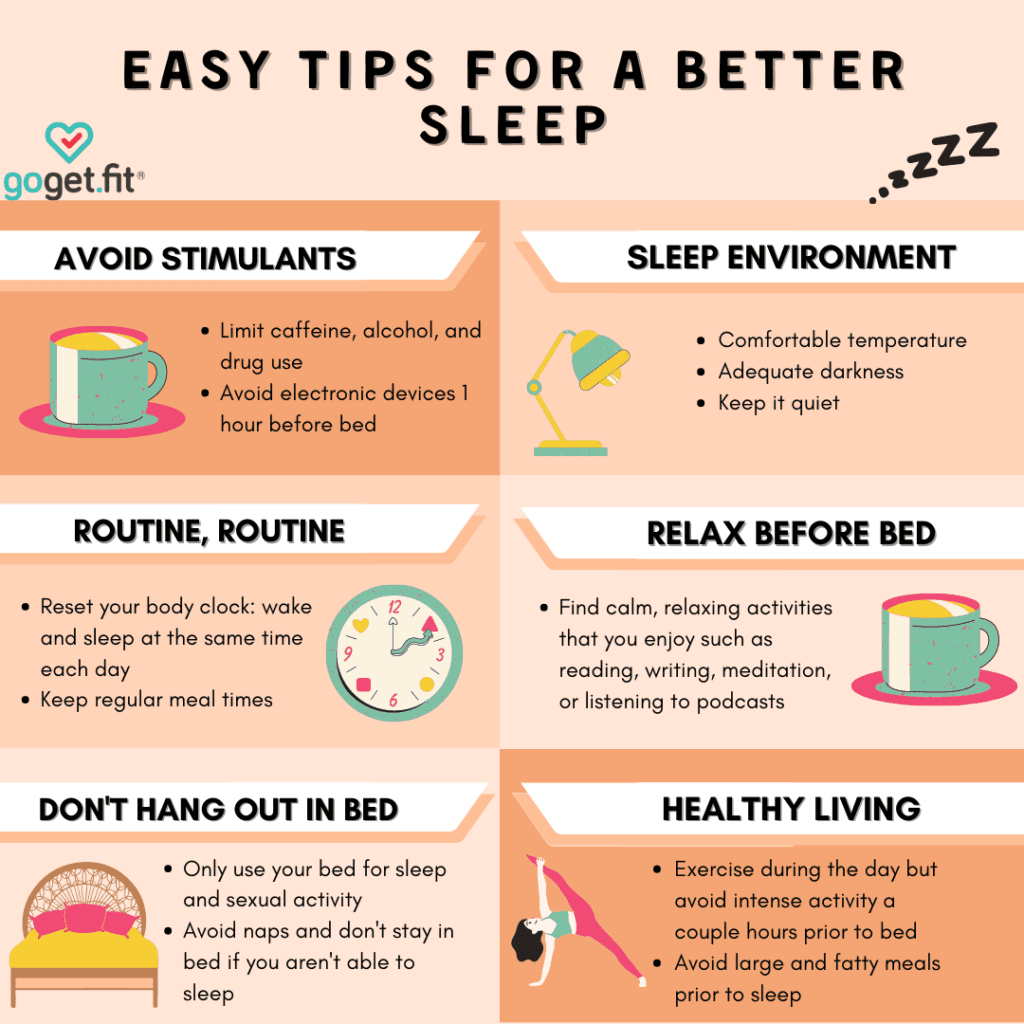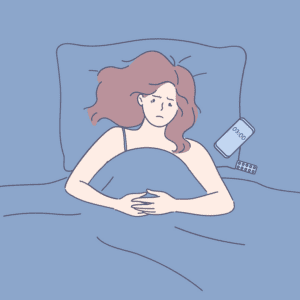GUEST BLOG POST – Why You Aren’t Sleeping Well
Written By GoGetFit Team


Restless nights, early mornings, and daytime drowsiness might have you wondering why you aren’t sleeping well. There could be many reasons your sleep is taking a hit, but luckily most of them are easy to resolve.
Let’s start with some of the straightforward ones. Regular bed and waking times are key to sleeping well as this lets your body maintain its circadian rhythm and sleep-wake cycle.
Weekends can be tricky here. You may enjoy staying up a bit later and sleeping in longer when you don’t need to be up for work in the morning. But, especially if you aren’t sleeping too well overall, it’s important to keep your bedtime as consistent as possible. Otherwise, you effectively give yourself jet lag every five days.
Why You Aren’t Sleeping Well
Try to develop a wind-down routine to relax before bed. This could be reading, meditating, listening to podcasts – whatever works for you. To sleep well, you should avoid stimulating activities like exercising within a few hours of hitting the hay:
- Backlit screens are bad news too. The blue light that our phones and TV screens emit reduces our body’s production of melatonin, the hormone responsible for making us feel sleepy. That’s why using these devices within an hour of bed can make it harder to fall asleep or even reduce your sleep quality over the course of the night.
- Smartphone notifications can be anxiety or stress-inducing; this is the last thing your mind needs before it shuts down for the night. Set your alarm and plug your phone in outside of where you can reach from your bed so you don’t start scrolling if you wake up during the night. In fact, whenever you find yourself awake for more than 20 minutes, the best thing to do is get out of bed and go do something relaxing until you feel like you’re ready to sleep again. Spending a lot of time awake in bed – whether it’s at night or during the day – could be the reason you aren’t sleeping well.
It’s important for our mind to associate being in bed with sleeping. Particularly for insomniacs, it’s recommended to only use your bed for sleeping and sex – no TV watching, no working, and no laptop use.
A Lifestyle and Environment for Sleeping Well
You also need an environment that is conducive to sleeping well. Ideally, your room will be quiet, dark, and cooler than room temperature. If your sleep is regularly interrupted by factors like noise, heat, or light try to find a solution as soon as possible.
Fans of white noise apps can drown out disruptive breakthrough sounds. And, an eye mask or blackout curtains might be what you need to snooze through those early summer sunrises.
Beyond environmental factors, lifestyle plays a major role in why you are or aren’t sleeping well. Physical activity is, as with many things we discuss at GoGetFit, crucial. You’ll sleep better if you tire your body out by exercising or just moving around throughout the day. Our bodies are designed to move, and sleep is there to restore our minds and bodies after a full day of use.
The last things we’ll mention today are food and substances. What we consume can either work with or against us. A healthy, balanced diet with regular meal times is good for much more than just sleep.
Caffeine, alcohol, and cannabis are commonly consumed substances that impact our sleep. It’s best to avoid coffee and strong teas after midday; even if you are one of those people who can jump into bed right after a cup of joe, your sleep quality might not be as high.
Cannabis and alcohol are often thought to induce or even improve sleep. While it might be true that these substances make you feel sleepy, they both decrease sleep quality. For example, cannabis suppresses rapid eye movement, or REM, sleep. This important sleep stage is very restorative for the mind and is also when we have most of our dreams. Regular cannabis users often report not remembering their dreams – are they actually forgetting their dreams? Or, are they just not having many?
If you aren’t sleeping well, try following the advice above or going for cognitive behavior therapy. Do not go straight for sleeping pills – this band-aid solution doesn’t get to the reason you are missing out on your slumber. Furthermore, long-term sleeping pill use can be dangerous.